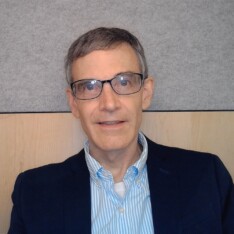Where Have You Gone, Alex P. Keaton?

One of the most popular sitcoms of the 1980s, Family Ties, featured two ex-hippies raising a family in the era of Ronald Reagan. Their eldest son Alex, played by a young Michael J. Fox, was an unabashed, necktie-wearing conservative who idolized Milton Friedman and excelled academically. Alex was, of course, an economics major.
I was a real-life economics major at this time, and though I wasn’t quite the student Alex was, I could discern two things very clearly. One, even at my relatively conservative university (Texas A&M), professors tended to the progressive side of the political spectrum. Two, exceptions to this rule were most often found in the economics department. It was a corner of the ivory tower where bookish types who believed in the power of free markets, and who possibly even voted for Reagan, had found refuge and comradery.
This may now be changing. Though it is not specific to economics, data strongly shows conservative professors disappearing from American campuses. In 1989, the year Family Ties was canceled, the ratio of (self-identified) liberal to conservative professors was 2.3/1. By 2016-17, the ratio had grown to 5/1. And according to a recent story in the New York Times, the economics profession itself is being divested of its conservative foundations as “even many Republican voters had drifted from the [free-market] views of Ronald Reagan and Paul Ryan.”
If this process continues, it could mark the end of a golden age of free-market economics in the academy that began in the 1970s, when Friedman and others filled a vacuum left by the collapse of Keynesian theories that promoted government planning of the economy. But the actual relationship between free-market economic thought and the academy goes back much further, and may be harder to undo than its opponents hope.
In the 1500s, Spain’s University of Salamanca was among the world’s leading institutions of higher learning. Theologians there such as Francisco de Vitoria were putting their minds to novel (at the time) ethical questions that sprang from global exploration and trade. In doing so, they played a seminal role in developing the revolutionary idea that individuals have inalienable natural rights over things such as their own thoughts, actions, and property. Vitoria even argued that these rights applied to New World Indians as much as to the Spanish explorers who were encountering them. It was a radical departure from the idea that rulers had a divine right to impose their will on subjects, and it grew into an intellectual movement known as La Escuela de Salamanca (the School of Salamanca), whose work bore intellectual fruit in the fields of philosophy, law, and economics.
A century later, the English philosopher John Locke fell under the spell of the Escuela’s thinkers, in particular Juan de Mariana, who crystallized many of its ideas in memorable prose. And in 1776, Thomas Jefferson, another Mariana fan, cribbed Locke’s ideas into the United States Declaration of Independence. The rest is history. Thirteen backwoods colonies separated from British rule based on natural rights and individual freedom. A century later these principles collided like a freight train with the South’s peculiar and feudal institution of slavery, producing a calamitous Civil War which again advanced the cause of freedom. A few decades after that, the United States became the wealthiest nation in history and in the twentieth century, the work of the School of Salamanca, though too often divorced from its historical context, still reverberated in economics departments including Alex Keaton’s fictional one (Leland University) and my real one.
The climate of American higher education has changed since then, and not in good ways. Respect for individual freedom, in particular the freedom of thought, is much lower than at any time in my life. It is easy to imagine a latter-day Alex showing up at Leland’s freshman orientation only to be canceled and chased from campus by an angry mob. The good news is that the ideas of people like Juan de Mariana and John Locke are much harder to chase off. They reflect reality and the human condition too accurately and have proven too successful historically to simply disappear. Even when suppressed beneath group power and vitriol, they are still there, waiting patiently to resurface in the marketplace of ideas.










